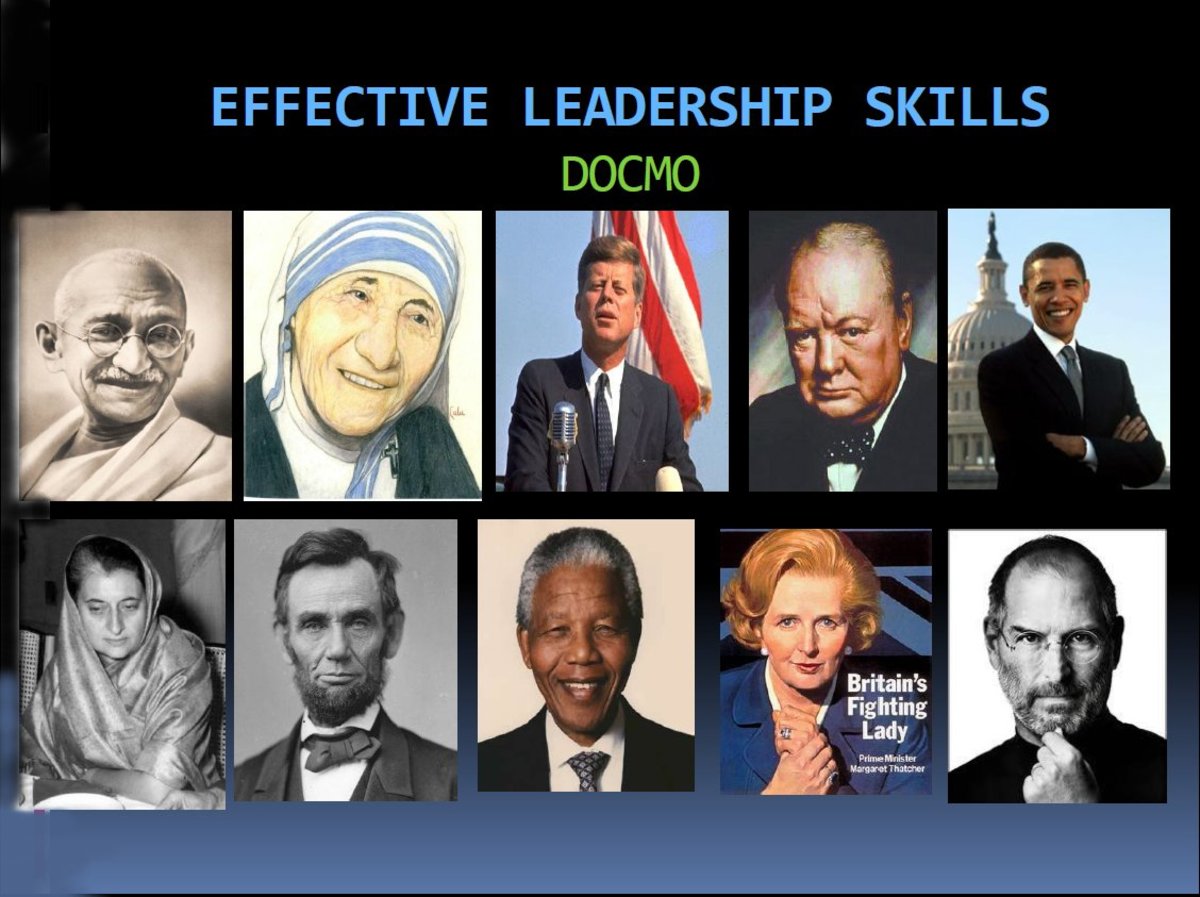The Age-old Question: Are Leaders Born or Made?

Leadership and Leaders
According to Gary Johns et al.(2005, p. 274), leadership is defined as “the influence that particular individuals exert on the goal achievement of others in an organizational context”.
Besides being able to persuade and motivate people to work towards a certain goal, a leader is someone "who can influence others and who has managerial authority.” (Robbins, S et al. 2006, p. 568). According to S.A Kirkpartrick and E.A Locke (1991), leaders are intelligent energetic people who are initiative, ambitious and willing to take responsibility.
Therefore, a leader is an individual who leads and motivates people towards a certain goal; a figurehead who rules, guides or inspires others. Simply put, a leader is one who is in charge or in command of others.

Definitions of a leader?
- Someone who has an excellent and admirable character: trustworthy, must fulfill promises made and also take responsibility for his own actions.
- Someone who takes work seriously: motivates followers towards a common objective/goal.
- Someone who is confident and calm in a crisis: displays self-confidence and exudes a clam disposition and able to adapt to situational changes.
People who are born with talent vs. those born into power
There are certain traits that are noticeable in people who are born with that 'leader' quality that differentiates them from the rest. This is a "unique combination of psychological characteristics that affects how a person reacts and interacts with others.” (Robbins, S et al. 2006, p. 462).
One good example of a good leader who possessed the above stated characteristics.would be Martin Luther King Jr., who fought for the civil rights of the black community. He was someone that the community could relate and believe in, and his way of doing things earned him respect and admiration from his followers.
Adolf Hitler, on the other hand, would be an example of a bad leader. Although he exhibited characteristics that had some 'leader' quality, he also had one more characteristic - he only listened to himself and did not like feedback. His decisions were the ultimatum, and no one dared to oppose his imperious ways because if they did the result was most often than not deadly. His selfish leadership style and dictatorship, adding to his desire to conquer other countries at his citizens' (and the conquered countries citizens) expense makes him a leader who did more harm than good.
There are also leaders who were born into their role as a leader regardless of their characteristics or personalit. Some examples are Prince William of England, Sultan Hassanal Bolkiah of Brunei and Emperor Akihito of Japan. Due to their unique upbringing, they are exposed to various leadership situations from young which causes them to be influential and in their own rights.
Conclusion
So are leaders born, or are they made?
“To suggest that leaders do not enter the world with extraordinary endowment is to imply that people enter the world with equal abilities, with equal talents.” (Cawthon, D L 1996, p. 2)
This can be seen in a simple case of someone who is musically or artistically inclined, versus a person who is tone-deaf or is not artistic. If the person with talent (e.g. musically or artistically) is nurtured according, they will not only get better at their craft, they will most likely excel at it. While a person who is tone-deaf or not that artistically inclined when given the same training, would not do as well as someone who has that talent; it is that x-factor that separates them. This is the same case with leadership.
Henece it can be concluded that (effective) leaders are (more likely) born than made, but only to a certain extent. The reason being that there are certain in-born traits or talent that can never be cultivated via training (e.g. charisma, wittiness). While It is true that people can be trained through leadership programs, these trained personnel will often pale in comparison with those who have in-born characteristics that allow them to excel in leadership roles.
It is not just the amount of training an individual receives that creates a leader; rather it is the traits an individual possesses and the willingness to learn (i.e. ability to adapt) that play a crucial role. The training just accelerates the development of the in-born abilities.
References:
- Cawthon, D L, 1996, ‘Leadership: the great man theory revisited, Business Horizons, May-June, pp. 1-4
- Gary J & Alan M. S, 2005,Organizational behaviour: Understanding and managing life at work, 6thedition, Pearson Education, Inc – Prentice Hall, Scarborough
- Kirkpartrick, S A & Locke, EA, 1991, ‘Leadership: do traits matter?’, Academy of Management Executive, May, pp. 48-60
- Robbins, S, Bergman, R, Stagg, I & Coulter M, 2006, Management, 4th edn, Pearson Prentice Hall, Australia
© 2015 Abigail Zhu









